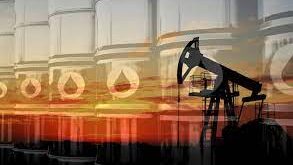Malaysia`s Petronas has confirmed its exit from Iraq`s Majnoon concession along with joint stakeholder Shell. after the Iraqi oil ministry announced it would assume control of the field.
`Petronas confirms its exit from the Majnoon oilfield. Iraq. together with Shell. We will be working with Shell on the handover of the field to the Basra Oil Company.` a spokeswoman for Petronas told The National in an emailed statement.
`An announcement will be made once details of the handover is finalised.`
The Malaysian state firm will relinquish its minority stake of 30 per cent along with Shell. which held a 45 per cent interest by June 2018.
The Iraqi oil ministry awarded the concession in Majnoon. one of the world’s largest oil fields with estimated reserves of 38 billion barrels. to the Anglo-Dutch oil major in 2010 under a technical services contract. Shell was tasked with raising production from the field. littered then with mines and weapons from the Iran-Iraq war in the 1980s to 1.8 million barrels per day (bpd) by 2017. a target the oil company found daunting. Following the fall in oil prices. Shell saw a steep decline in profitability per barrel of oil and subsequently announced its decision to quit in September.
On Thursday. the oil ministry announced it had put together a new management team to oversee the transition of interest back to the state. It also outlined a target to ramp up production to 400.000 bpd from the current level of 235.000 bpd `over the coming years`. without specifying a timeline.
“The priority of the new management team is to cut the cost of producing a barrel [of crude] from Majnoon by 30 per cent.“ Iraqi oil minister Jabar Al Luaibi said in a statement on the ministry`s website on Thursday.
Iraq. the second the largest producer of oil within Opec after Saudi Arabia. is balancing the need to raise output to finance its post-ISIL reconstruction efforts while maintaining production cut quotas as part of an agreement with other fellow oil exporting states to stabilise prices.
Baghdad. which had earlier targeted raising its production to five million bpd by the end of 2017. requires significant funding and expertise from international oil companies (IOCs) to develop its massive fields. However. IOCs like Shell found the terms of their contract with the government too restrictive.
`Iraq`s technical service contracts constrain upstream investment in two ways. Firstly. Iraq effectively pays the capex through cost recovery so any major investment has to be budgeted and approved by the government.` said Ian Thom. principal analyst. Middle East upstream at Edinburgh-based energy consultancy Wood Mackenzie.
`Secondly. the low profit fee for the international investor means Iraqi projects often struggle to compete for capital against more profitable projects. Iraq`s budget primarily comes from oil revenues. so when oil receipts are low. only a small share of that can be reinvested back into oil and gas.`
There are hopes that IOCs may return to Majnoon. following Mr Al Luaibi’s comments on the sidelines of Opec’s gathering in Vienna in November. where he suggested a consortium of the US’s Chevron. France’s Total and PetroChina may be invited to operate on terms different to that agreed with Shell.
Following its exit. the Malaysian firm`s key interest in Iraq is through its majority stake in the Garraf oil field (45 per cent) in the southern Dhi Qar province. from where production currently stands at 100.000 bpd. Its other interests include minority stakes in the Halfaya and Badra concessions. also in the south.

 Iran Energy News Oil, Gas, Petrochemical and Energy Field Specialized Channel
Iran Energy News Oil, Gas, Petrochemical and Energy Field Specialized Channel



